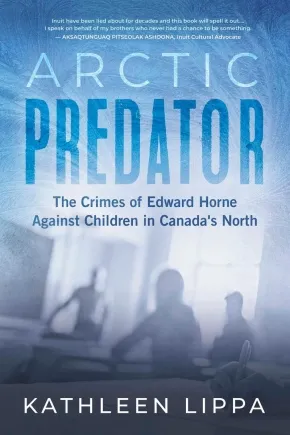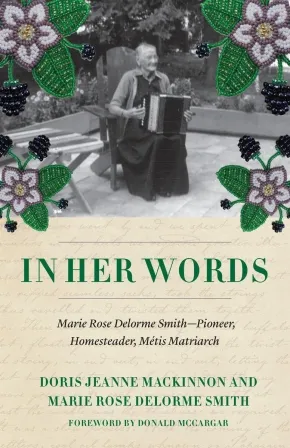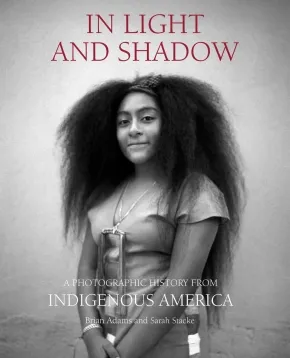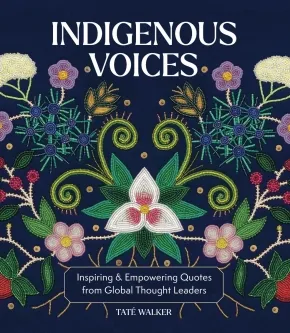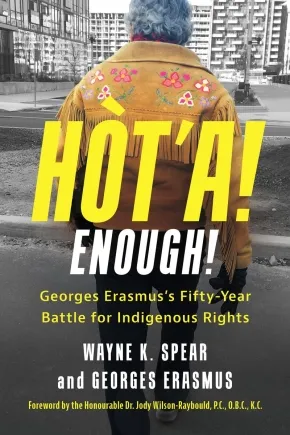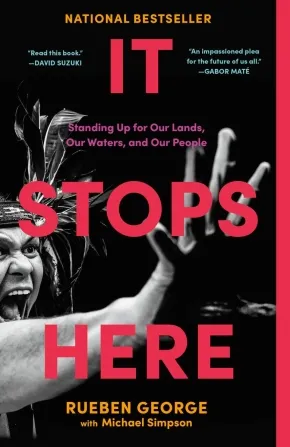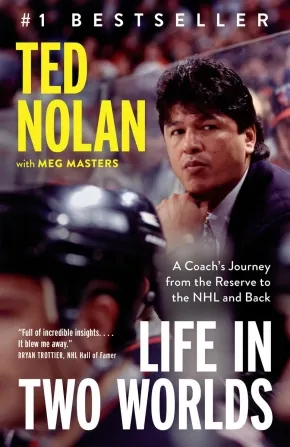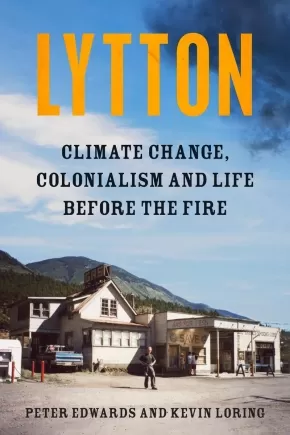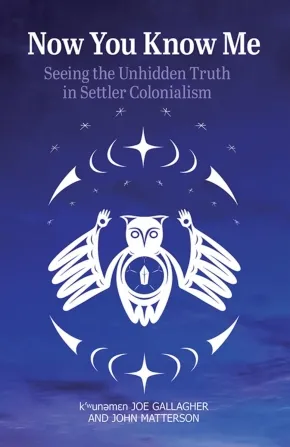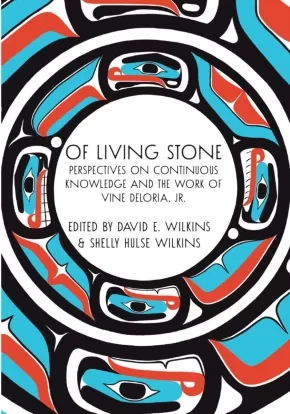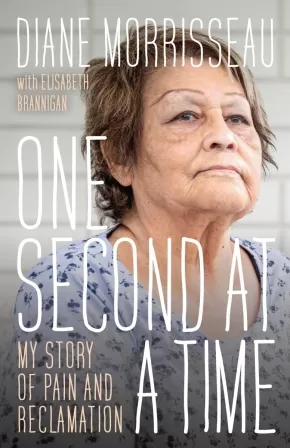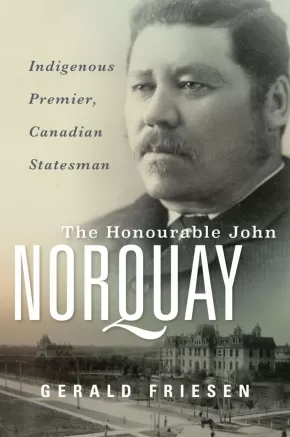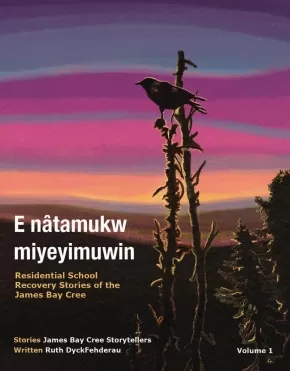
Biographies
1
-
15
of
76 Results;
Sort By
Go To
of 6
Arctic Predator: The Crimes of Edward Horne Against Children in Canada's North
$26.99
Format:
Paperback
Text Content Territories:
Indigenous Canadian; Inuit;
Reading Level: N/A
ISBN / Barcode: 9781459754805
Synopsis:
Synopsis:
The shocking crimes of a trusted teacher wrought lasting damage on Inuit communities in Canada's Arctic.
In the 1970s, a young schoolteacher from British Columbia was becoming the darling of the Northwest Territories education department with his dynamic teaching style. He was learning to speak the local language, Inuktitut, something few outsiders did. He also claimed to be Indigenous - a claim that would later prove to be false. In truth, Edward Horne was a pedophile who sexually abused his male students.
From 1971 to 1985 his predations on Inuit boys would disrupt life in the communities where he worked - towns of close-knit families that would suffer the intergenerational trauma created by his abuse.
Journalist Kathleen Lippa, after years of research, examines the devastating impact the crimes had on individuals, families, and entire communities. Her compelling work lifts the veil of silence surrounding the Horne story once and for all.
Additional Information
280 pages | 6.00" x 9.00" | Paperback
Gino: The Fighting Spirit of Gino Odjick
$36.00
Format:
Hardcover
Text Content Territories:
Indigenous Canadian; First Nations; Anishinaabeg; Algonquin; Kitigan Zibi Anishinabeg;
Reading Level: N/A
ISBN / Barcode: 9781778402708
Synopsis:
Synopsis:
From veteran hockey reporter Patrick Johnston and Gino’s longtime friend Peter Leech comes the authorized biography of Gino Odjick.
In the 1980s and ’90s, National Hockey League games were very different from the nimble, skill-focused displays we see today. One of the greatest differences—and one of the sport’s more popular facets at the time—was the widespread presence of “enforcers”: hulking, battle-scarred players whose main task was to police the sport by chasing down and brawling with opponents who had broken unwritten codes determining which aspects of violence counted as dishonorable or unjustified.
When hard-hitting Vancouver Canucks player Gino Odjick emerged in the early 1990s, he quickly became one of the game’s most feared enforcers and revered teammates, a sign of a new era for the team, racking up 296 penalty minutes in the 45 games he played in his rookie season. Hailing from Kitigan Zibi, an Algonquin community near Maniwaki, Quebec, Gino was one of the few Indigenous players in the NHL at the time. But it was Gino’s ferocious play contrasted by his genuinely affable and openhearted personality off the ice that won him a special place in the hearts of Canucks supporters.
Yet legends often obscure the human stories behind them. Patrick Johnston and Peter Leech look beyond Gino’s legendary persona, drawing on insights from family members, friends, and teammates to recount Gino’s early years in a loving household that was always ready to welcome foster children. Gino’s father, Joe, had suffered the lonely traumas of the residential school system, and the experience had instilled a commitment in the family to those who were less fortunate.
The book also details Gino’s eventual struggles with alcohol abuse, and how he responded by taking on the role of empathetic mentor to young Indigenous people, travelling from community to community to hear their stories and offer hope. He never wavered in this role, even as he confronted serious illnesses, including chronic traumatic encephalopathy (CTE) and the rare blood disorder that he survived for years longer than expected, but that eventually led to his death at age fifty-two.
Gino is a moving tribute to a beloved hockey legend.
Reviews
"Gino was the greatest teammate; he had such a huge heart and knew his role better than anyone in the league. Gino loved being a Vancouver Canuck and gave back to the community in so many ways. He will be greatly missed by his family, friends, and fans. This book will give people insight into his remarkable life."—Geoff Courtnall
“Gino provides a compelling account of the life of a beloved Vancouver Canuck. From his humble beginnings in Quebec to NHL stardom and beyond, Odjick was dedicated to the well-being of teammates and the Indigenous community. This is an excellent tribute to an exceptional man.”—Randi Druzin, author of Between the Pipes and Behind the Mask
Additional Information
288 pages | 6.00" x 9.00" | b&w insert | Hardcover
In Her Words: Marie Rose Delorme Smith—Pioneer, Homesteader, Métis Matriarch
$29.95
Format:
Paperback
Text Content Territories:
Indigenous Canadian; Métis;
Reading Level: N/A
ISBN / Barcode: 9781772035209
Synopsis:
Synopsis:
Part historical biography, part compilation of the written works of Mary Rose Delorme Smith (1861–1960), a prolific and accomplished Métis woman.
Born into a prominent fur-trading family and remembered as a community builder and rancher, Marie Rose Delorme Smith (1861–1960) is seldom recognized as a writer and chronicler of Métis and Prairie history. Fluent in French, English, and likely Michif, Delorme Smith recorded a wealth of written records and stories throughout her long life, in the form of letters, published articles, unpublished manuscripts, and personal documents.
Donated to public archives following her death, these written works garnered some interest among scholars and biographers over the years, as prominent Indigenous women gradually found a place in the histories they had been left out of for generations. Delorme Smith became the subject of biographies and scholarly research, and she was finally recognized as a “National Historic Person” by the Canadian government in 2022. However, the recognition bestowed upon her rarely highlighted her own words, which reveal so much about her life, Métis history, and Prairie life in the late nineteenth and early twentieth centuries.
For the first time, historian and biographer Doris Jeanne MacKinnon presents an extensive array of Delorme Smith’s writings, preserved verbatim, and puts them in historical and social context. This fascinating collection of documents from a bygone era reveals the strength, intellect, and leadership of a fascinating Métis martriarch.
Additional Information
276 pages | 5.50" x 8.50" | b&w photographs | Paperback
In Light and Shadow: A Photographic History from Indigenous America
$51.00
Artists:
Format:
Hardcover
Text Content Territories:
Indigenous Canadian; Indigenous American; Indigenous Polynesian; Indigenous Hawaiian;
Reading Level: N/A
ISBN / Barcode: 9780762482467
Synopsis:
Synopsis:
A landmark photography collection featuring work exclusively by Indigenous Americans, shedding new light on the understanding of Indigenous America.
The history of photography–and the Americas–is incomplete without the critical work and perspectives of Indigenous American photographers. Since the 1800s, cameras have been in the hands of Indigenous people and they have incorporated photography into their lives as creators, patrons, and collectors.
Five years ago, photographers Brian Adams and Sarah Stacke set off on a mission to assemble a groundbreaking, digital library of Indigenous photographers from the 19th century to the present. With In Light and Shadow: A Photographic History from Indigenous America, Adams and Stacke expand on that work, creating a one-of-a-kind collection of photographs that offers a first-hand look at the people, cultures, and evolving traditions of Indigenous America while providing a counterhistory to settler-colonial narratives.
From Jennie Fields Ross Cobb, the earliest known Indigenous American woman photographer, to Arhuaco documentarian Amado Villafaña Chaparro, through Kapuleiikealoonalani Flores, a Native Hawaiian who was born in 2000, the photographers span many generations as well as multiple Indigenous societies and nations. Each entry includes a biographical sketch of the artist, along with their inspirations and contributions to the photographic medium.
With profiles of 80 photographers and more than 250 photographs, this unique book brings to light the canon of Indigenous American photography that has been developing on its own terms for decades.
Additional Information
304 pages | 8.50" x 10.30" | 250 black-and-white and color photographs | Hardcover
Indigenous Voices: Inspiring & Empowering Quotes from Global Thought Leaders
$25.99
Format:
Hardcover
Text Content Territories:
Indigenous Canadian; Indigenous American; Indigenous South American;
Reading Level: N/A
ISBN / Barcode: 9781577154914
Synopsis:
Synopsis:
Immerse yourself in Indigenous Voices, an inspiring volume of quotations by Indigenous thought leaders, activists, politicians, and scholars illustrated with stunning artwork by Indigenous artists.
This captivating book weaves together the timeless wisdom of Indigenous people from various nations and regions through a mosaic of more than 60 quotes, words, and stories by elders, leaders, activists, scholars, and influential contemporaries spanning all walks of life. Discover the diverse and unique heritage of extraordinary people like:
- Shina Novalinga – A member of the Inuk living in Montreal, Canada, Shina Novalinga is a content creator, singer, and activist who shares her Inuk culture across social media, of which an important aspect is traditional throat singing with her mother.
- Natali Segovia – A member of the Quechua, Natali Segovia is the Executive Director of the Water Protector Legal Collective and a human rights attorney. Her advocacy focuses on defending Water Protectors and human rights defenders facing repression for their activism.
- Corrina Gould – Of the Ohlone, Corrina Gould is the chair and spokesperson for the Confederated Villages of Lisjan, the Co-Director for the Sogorea Te' Land Trust, and the lead organizer for Indian People Organizing for Change.
- Elias Not Afraid – A member of the Apsáalooke (Crow), Elias Not Afraid is a mega-award-winning queer beader and fashion designer. He says, “When people think of native beadwork, they think trinkets and good luck charms and dream catchers but it’s far from it. I create wearable art that is durable and can be used daily and last over a lifetime and be used as a family heirloom.”
- Lily Gladstone – An American actress from the Blackfeet Reservation, Gladstone is of Piegan Blackfeet, Nez Perce, and European heritage. They earned critical acclaim for portraying Mollie Kyle, an Osage woman who survived the Osage Indian murders in Martin Scorsese’s film Killers of the Flower Moon, among other important roles in film and television.
- Kola Shippentower – A member of the Umatilla, Shippentower is the first Native American player for the Oregon Ravens, a tackle football team for women and non-binary players.
- Shiloh Maples – Of the Odawa, Maples is a citizen of the Little River Band of Indians based in Michigan. Through her interest in Indigenous food systems and her own Ojibwe and Odawa heritage, she developed the program Sacred Roots for the American Indian Health and Family Services in Detroit, where she taught cooking classes and promoted dishes using traditional, seasonal, and local ingredients in a way that improved participants’ health while connecting them with their culture.
- Alvera Sargent – Sargent, of the Akwesasne Mohawk, worked with the Akwesasne Freedom School, one of the oldest Indigenous language schools in North America. “My hope for our tribal community at large is that more of our people come back to our traditional space. I am grateful that our time has come as Indigenous people are being recognized for their traditional knowledge systems. The community is recognizing that Indigenous people do have the wisdom of our ancestors to share, which helps all areas of our society.”
- And more!
Indigenous Voices offers a unique opportunity to connect with ancient traditions, refresh your perspective with modern insight, and gain awareness and understanding that resonate across cultures and generations.
Additional Information
192 pages | 7.5" x 8.6" | Hardcover
Hòt'a! Enough!: Georges Erasmus's Fifty-Year Battle for Indigenous Rights
$28.99
Format:
Paperback
Text Content Territories:
Indigenous Canadian; First Nations; Dene;
Reading Level: N/A
ISBN / Barcode: 9781459752900
Synopsis:
Synopsis:
The political life of Dene leader Georges Erasmus - a radical Native rights crusader widely regarded as one of the most important Indigenous leaders of the past fifty years.
For decades, Georges Erasmus led the fight for Indigenous rights. From the Berger Inquiry to the Canadian constitutional talks to the Oka Crisis, Georges was a significant figure in Canada's political landscape. In the 1990s, he led the Royal Commission on Aboriginal Peoples and afterward was chair and president of the Aboriginal Healing Foundation, around the time that Canada's residential school system became an ongoing frontpage story.
Georges's five-decade battle for Indigenous rights took him around the world and saw him sitting across the table from prime ministers and premiers. In the 1980s, when Georges was the National Chief of the Assembly of First Nations, he was referred to as the "Thirteenth Premier." This book tells the personal story of his life as a leading Indigenous figure, taking the reader inside some of Canada's biggest crises and challenges.
Awards
- 2025 Indigenous Voices Awards - Prose in English Award
Additional Information
320 pages | 6.00" x 9.00" | 57 b&w illustrations | Paperback
It Stops Here: Standing Up for Our Lands, Our Waters, and Our People (PB)
$24.00
Format:
Paperback
Text Content Territories:
Indigenous Canadian; First Nations; Salish; Coast Salish; Tsleil-Waututh;
ISBN / Barcode: 9780735242821
Synopsis:
Synopsis:
A personal account of one man’s confrontation with colonization that illuminates the philosophy and values of a First Nation on the front lines of the fight against an extractive industry, colonial government, and threats to the life-giving Salish Sea.
It Stops Here is the profound story of the spiritual, cultural, and political resurgence of a nation taking action to reclaim their lands, waters, law, and food systems in the face of colonization. In deeply moving testimony, it recounts the intergenerational struggle of the Tsleil-Waututh Nation to overcome colonial harms and the powerful stance they have taken alongside allies and other Indigenous nations across Turtle Island against the development of the Trans Mountain Pipeline—a fossil fuel megaproject on their unceded territories.
In a firsthand account of the resurgence told by Rueben George, one of the most prominent leaders of the widespread opposition to the Trans Mountain Pipeline expansion, It Stops Here reveals extraordinary insights and revelations from someone who has devoted more than a decade of his life to fighting the project. Rueben shares stories about his family’s deep ancestral connections to their unceded lands and waters, which are today more commonly known as Vancouver, British Columbia and the Burrard Inlet. He discloses how, following the systematic cultural genocide enacted by the colonial state, key leaders of his community, such as his grandfather, Chief Dan George, always taught the younger generations to be proud of who they were and to remember the importance of their connection to the inlet.
Part memoir, part call to action, It Stops Here is a compelling appeal to prioritize the sacred over oil and extractive industries, while insisting that settler society honour Indigenous law and jurisdiction over unceded territories rather than exploiting lands and reducing them to their natural resources.
Additional Information
288 pages | 5.13" x 7.98" | 31 b+w images throughout | Paperback
Life in Two Worlds: A Coach's Journey from the Reserve to the NHL and Back (PB)
$23.00
Format:
Paperback
Text Content Territories:
Indigenous Canadian; First Nations; Anishinaabeg; Ojibway; Ketegaunseebee (Garden River First Nation);
Reading Level: N/A
ISBN / Barcode: 9780735244979
Synopsis:
Synopsis:
In 1997 Ted Nolan won the Jack Adams Award for best coach in the NHL. But he wouldn’t work in pro hockey again for almost a decade. What happened?
Growing up on a First Nation reserve, young Ted Nolan built his own backyard hockey rink and wore skates many sizes too big. But poverty wasn’t his biggest challenge. Playing the game meant spending his life in two worlds: one in which he was loved and accepted and one where he was often told he didn’t belong.
Ted proved he had what it took, joining the Detroit Red Wings in 1978. But when his on-ice career ended, he discovered his true passion wasn’t playing; it was coaching. First with the Soo Greyhounds and then with the Buffalo Sabres, Ted produced astonishing results. After his initial year as head coach with the Sabres, the club was being called the “hardest working team in professional sports.” By his second, they had won their first Northeast Division title in sixteen years.
Yet, the Sabres failed to re-sign their much-loved, award-winning coach.
Life in Two Worlds chronicles those controversial years in Buffalo—and recounts how being shut out from the NHL left Ted frustrated, angry, and so vulnerable he almost destroyed his own life. It also tells of Ted’s inspiring recovery and his eventual return to a job he loved. But Life in Two Worlds is more than a story of succeeding against the odds. It’s an exploration of how a beloved sport can harbour subtle but devastating racism, of how a person can find purpose when opportunity and choice are stripped away, and of how focusing on what really matters can bring two worlds together.
Reviews
"Full of incredible insights into a tough life that Teddy’s perseverance turned into inspiration. It blew me away.”—Bryan Trottier, NHL Hall of Famer
“Ted’s beautiful memoir follows a trail of losses and the pain of getting well, and his stunning successes, lifting trophies, lifting lives. Ted was able to reach so many things, but his truth went beyond these things, and it’s the story of how he went beyond, to keep what was true in front of him that makes this book so enjoyable, and so important.”—Ron MacLean, CBC sportscaster and host of Hockey Night in Canada
“Ted Nolan’s story is truly remarkable. Ted persevered and overcame significant obstacles at a time when Indigenous people were not encouraged, applauded, or even wanted in elite hockey leagues. Ted broke barriers, battled racism, worked hard, and not only became an NHL player but also an elite junior, NHL, and international coach. Ted paved the way for many Indigenous youth to not only participate, but succeed in hockey arenas across North America and Europe as coaches and players.”—Phil Fontaine, former National Chief of the Assembly of First Nations
“Playing for Ted Nolan is one of my fondest memories. People called us “The Hardest Working Team in Hockey” and that doesn’t happen without a coach who can show each player their purpose and prove his belief in them. We all played beyond our own abilities for Ted. We led the NHL in penalty minutes and no team wanted to play us in our building. I respect Ted as a coach both on and off the ice, and this book gives a hint of why he inspires that in players and in people in general.”—Rob Ray, broadcaster and former NHLer
“Teddy was my favourite coach, mentor and friend. I love Ted Nolan. This book gives a good sense of what makes him so special.”—Brad May, former NHLer, Stanley Cup winner, and AT&T SportsNet analyst
“My father was so proud of Ted; he understood what he was going through. A story of perseverance, Life in Two Worlds is a great read for any generation."—Neil Sasakamoose, son of Fred Sasakamoose, the NHL’s first Treaty Indigenous player and bestselling author of Call Me Indian
Additional Information
336 pages | 5.11" x 7.97" | 8-page colour insert | Paperback
Lytton: Climate Change, Colonialism and Life Before the Fire
$36.00
Format:
Hardcover
Text Content Territories:
Indigenous Canadian; First Nations; Salish; Interior Salish; Nlaka'pamux (Thompson);
Reading Level: N/A
ISBN / Barcode: 9781039006157
Synopsis:
Synopsis:
From bestselling true-crime author Peter Edwards and Governor General's Award-winning playwright Kevin Loring, two sons of Lytton, BC, the town that burned to the ground in 2021, comes a meditation on hometown―when hometown is gone.
Before it made global headlines as the small town that burned down during a record-breaking heat wave in June 2021, while briefly the hottest place on Earth, Lytton, British Columbia, had a curious past. Named for the author of the infamous line, “It was a dark and stormy night,” Lytton was also where Peter Edwards, organized-crime journalist and author of seventeen non-fiction books, spent his childhood. Although only about 500 people lived in Lytton, Peter liked to joke that he was only the second-best writer to come from his tiny hometown. His grade-school classmate’s nephew Kevin Loring, Nlaka’pamux from Lytton First Nation, had grown up to be a Governor General's Award-winning playwright.
The Nlaka’pamux called Lytton “The Centre of the World,” a view Buddhists would share in the late twentieth century, as they set up a temple just outside town. In modern times, many outsiders would seek shelter there, often people who just didn’t fit anywhere else and were hoping for a little anonymity in the mountains. You’ll meet a whole cast of them in this book.
A gold rush in 1858 saw conflict with a wave of Californians come to a head with the Canyon War at the junction of the mighty Fraser and Thompson rivers, one that would have changed the map of what was soon to become Canada had the locals lost. The Nlaka’pamux lost over thirty lives in that conflict, as did the American gold seekers. A century later, Lytton hadn’t changed much. It was always a place where the troubles of the world seemed to land, even if very few people knew where it was.
This book is the story of Lytton, told from a shared perspective, of an Indigenous playwright and the journalist son of a settler doctor who quietly but sternly pushed back against the divisions that existed between populations (Dr. Edwards gladly took a lot of salmon as payment for his services back in the 1960s). Portrayed with all the warmth, humour and sincerity of small-town life, the colourful little town that burned to the ground could be every town’s warning if we don’t take seriously what this unique place has to teach us.
Additional Information
376 pages | 6.00" x 9.00" | Hardcover
Métis Matriarchs: Agents of Transition
$34.95
Editors:
Format:
Paperback
Text Content Territories:
Indigenous Canadian; Métis;
Reading Level: N/A
ISBN / Barcode: 9781779400116
Synopsis:
Synopsis:
Explores the integral roles that Métis women assumed to ensure the survival of their communities during the fur trade era and onward
Métis Matriarchs examines the roles of prominent Métis women from across Western Canada from the late 19th to the mid-20th century, providing a rare glimpse into the everyday lives of these remarkable women who were recognized as Matriarchs and respected for their knowledge, expertise, and authority within their families and communities.
This edited collection provides an opportunity to learn about the significant contributions made by Métis women during a transitional period in Western Canadian history as the fur trade gave way to a more sedentary, industrialized, and agrarian economy. Challenging how we think about Western Canadian settlement processes that removed Indigenous peoples from the land, this collection of stories examines the ways Métis matriarchs responded to colonial and settler colonial interventions into their lives and livelihoods and ultimately ensured the cultural survival of their communities.
Awards
- 2025 Canadian Historical Association Indigenous History Book Prize
Reviews
“A nuanced account of the lives of Métis women and their vital roles as they helped guide their families and communities through generations of transitions.” —Michel Hogue, author of Metis and the Medicine Line
Additional Information
336 pages | 5.00" x 8.00"| Paperback
Now You Know Me: Seeing the Unhidden Truth in Settler Colonialism
$24.95
Format:
Paperback
Text Content Territories:
Indigenous Canadian; First Nations; Salish; Coast Salish; Tla'amin (Sliammon);
ISBN / Barcode: 9780888397829
Synopsis:
Synopsis:
Now You Know Me tells of a journey of understanding between two old friends who grew up in different worlds in the same small town of Powell River, BC, on traditional Tla’amin land. Joe Gallagher, who is Tla’amin, and John Matterson, who is white, were friends as teenagers but went their separate ways before reconnecting 35 years later and truly getting to know each other.
As John began to listen more deeply to Joe’s history, they journeyed together through the historic events and attitudes that deeply wounded the Tla’amin and their way of life. With each conversation, John’s understanding of Joe’s life and recognition of his own unearned advantages and blind participation in racism became clearer.
In their illuminating dialogue in Now You Know Me, we learn what it took for Joe to straddle two worlds while battling racism, a traumatic childhood, and his father’s warning that he couldn’t succeed in a white world without working twice as hard. Despite ongoing suffering from multigenerational harms, Joe garnered broad respect on his way to becoming CEO of a groundbreaking Indigenous-led health organization, bringing hope and a collaborative spirit to a revolution in health and wellness for BC First Nations.
Today, John is committed to ongoing learning and allyship, while Joe is called on by First Nations leaders as well as senior leaders in health and government as an able navigator of the movement toward Truth and Reconciliation.
Additional Information
304 pages | 5.50" x 8.50" | Paperback
Of Living Stone: Perspectives on Continuous Knowledge and the Work of Vine Deloria, Jr.
$43.95
Editors:
Format:
Paperback
Text Content Territories:
Indigenous American; Native American; Sioux; Lakota;
Reading Level: N/A
ISBN / Barcode: 9781682754665
Synopsis:
Synopsis:
Of Living Stone: Perspectives on Continuous Knowledge and the Work of Vine Deloria, Jr. is a collection of new essays on the legacy of Vine Deloria, Jr., one of the most influential thinkers of our time. This insightful collection features more than thirty original pieces, bringing together Tribal leaders, artists, scientists, activists, scholars, legal experts, and humorists. A group of French scholars offers surprising perspectives on Deloria’s continuing global influence. Readers will find thoughtful and creative views on his wide-ranging and world-changing body of work. Some build upon his ideas while others offer important criticisms. In addition to its content, this volume is unique in that it was designed to center the traditional exercise of continuous knowledge whereby information is routinely shared, considered, and pragmatically adapted as it flows between generations. In this way, people, ideas and traditions remain alive and relevant—not set in stone —as the past is honored by those living in the present as they prepare for the future.
The book includes contributions from a number of remarkable individuals, including:
- Climate expert Margaret Redsteer (Crow)
- Melanie Yazzie (Diné), host of The Red Power Hour podcast
- Cheryl Crazy Bull (Sicangu Lakota), president of the American Indian College Fund
- Activists Faith Spotted Eagle (Yankton Dakota) and Lauren Schad (Cheyenne River Lakota)
- Writer and producer Migizi Pensoneau (Ponca/Ojibwe)
- Environmental scientists Kyle Whyte (Citizen Potawatomi) and Ryan Emanuel (Lumbee)
- Experts on Tribal Governance Deron Marquez (Yuhaaviatam of San Manuel), Frank Ettawageshik (Little Traverse Bay), Norbert Hill (Oneida), Megan Hill (Oneida), and Marty Case.
- Artists Cannupa Hanska Luger (MHA-Three Affiliated Tribes) and James Johnson (Tlingit)
- Legal Scholars Sarah Deer (Muscogee), Rebecca Tsosie (Yaqui descent), and Gabe Galanda (Round Valley)
- Archaeologist Paulette Steeves (Cree-Metis)
- Scholars of Indigenous Traditions Noenoe Silva (Kānaka Maoli), Natalie Avalos (Chicana of Mexican Indigenous descent), Tom Holm (Cherokee), and Greg Cajete (Tewa-Santa Clara Pueblo).
Time magazine named Vine Deloria, Jr. as one of the greatest thinkers of the twentieth century, and his research, writings, and teachings on history, law, religion, and science continue to influence generations of Indigenous peoples and their allies across the world.
Reviews
“For me as a young person in the 1980s and 1990s, Vine was the only stranger I thought of as family. He was funny and heart-stabbingly blunt. So we have Vine Deloria to thank for revitalizing Indigenous knowledge gathering. Inspired by Vine’s life work, Anishinaabe people now understand that we learn by listening (bzindamowin), observing (gnawaaminjigewin), and ceremony (manidookewin). We also know it’s important to have a LOT of fun (miiziiwapine). Of Living Stone is both a somber memorial and a raucous celebration of Vine’s work.”—Matthew Fletcher (Grand Traverse Band of Ottawa and Chippewa Indians), University of Michigan, and author of The Ghost Road
Additional Information
528 pages | 6.00" x 9.00" | Paperback
One Second at a Time: My Story of Pain and Reclamation
$24.95
Format:
Paperback
Text Content Territories:
Indigenous Canadian; First Nations; Anishinaabeg; Sagkeeng;
Reading Level: N/A
ISBN / Barcode: 9780774880978
Synopsis:
Synopsis:
Bullied and abused at the Fort Alexander Indian Residential day school, Diane Morrisseau fought back and left school at the age of fifteen. Despite her strength, a childhood of trauma and abuse led her into the arms of Edgar Olson, and by sixteen, the young Ojibway-Anishinabe woman had given birth to her first child and married the man who would become her tormentor for the next eighteen years.
For almost two decades, Diane Morrisseau was chained to a brutal husband who abused not only her, but their children. By threatening Diane with their death and hers should she ever try to leave, he ensured that she would continue to endure his cruelty. Notoriously violent, her abuser was aided and abetted by the systems of colonialism that failed to protect Diane during her childhood. Edgar was able to keep Diane and her children trapped in a cycle of violence for years, without being held accountable by law or society.
Despite this, Diane found the strength to walk away. This book is the story of how she did so, and how she rebuilt a life beyond her abuser. Through Al-Anon, Anishinabe traditional healing ceremonies, counselling, and care for others, Diane found a new path illuminated by compassion and purpose.
Diane Morrisseau recounts her traumatic history with one aim: to help other victims of violence know they are not alone, and that escape is possible. The author’s entire career, and this book, testify to her desire to extend to others the hope that eluded her in the depths of her desperate circumstances.
Devastatingly frank about the abuse she suffered, the mothering her children missed because of it, and the systems that allowed it all to happen, Diane today has reconciled the past with a present where she continues to live out the values that matter to her most.
All royalties from sales of this book will be donated to Archway Community Services.
The story of an Ojibway-Anishinabe woman who, against incredible odds, rescued herself and her children from a life of brutal beatings, sexual servitude, and almost unimaginable hardship.
Reviews
"Selected as one of the most anticipated feminist books of 2024."— Ms. Magazine
"A courageous and harrowing story. Morrisseau uses her painful personal journey to frame the horrific history of residential schools. Evocative and illuminating."
— Angela Sterritt, author of Unbroken: My Fight for Survival, Hope, and Justice for Indigenous Women and Girls
"I is, in many ways, a difficult story to read – but it is one that needs to be told. Readers will learn about a courageous woman and the circumstances that enabled an abusive relationship, and hear her message for how to recognize the situation and take steps toward a better life."— Don McCaskill, co-author of In the Words of the Elders
"A fervent call to action, an impassioned plea for compassion and empathy, and a formidable rallying cry that seeks to instigate transformation [… One Second at a Time] serves as a bridge, seeking to connect human souls through shared understanding and collective responsibility."— From the foreword by Marlyn Bennett
"Raw and brutally honest. Morrisseau bravely shares the details of her life with a violent man. Validating and inspiring, her story affirms the complicated healing journey of abuse survivors. It’s a must read for anyone working in the field of gender-based violence."— Kendra Nixon, director of Research and Education for Solutions to Violence and Abuse (RESOLVE)
"Diane Morrisseau has taken us into her confidence with her story, allowing us to truly understand as a society how the relationship between Indigenous people and settlers has created immense hardships for Indigenous people, families, and communities."— Marion Maar, professor, Northern Ontario School of Medicine University
Educator Information
All royalties from sales of this book will be donated to Archway Community Services.
Table of Contents
Foreword: A Tapestry of Truths / Marlyn Bennett
Preface
Prologue
A Note on the Text
1 A Perfect Home
2 Day School
3 Posting of the Bands
4 Mrs. Olson
5 Holes in the Walls
6 Breakdown
7 Scars
8 Breaking Free
9 Seeing the Trees
10 Freedom at Last
Acknowledgments
About the Authors
Additional Information
198 pages | 5.50" x 8.50" | Paperback
The Honourable John Norquay: Indigenous Premier, Canadian Statesman
$39.95
Format:
Hardcover
Text Content Territories:
Indigenous Canadian; Métis;
Reading Level: N/A
ISBN / Barcode: 9781772840582
Synopsis:
Synopsis:
The life and times of the Premier from Red River
John Norquay, orphan and prodigy, was a leader among the Scots Cree peoples of western Canada. Born in the Red River Settlement, he farmed, hunted, traded, and taught school before becoming a legislator, cabinet minister, and, from 1878 to 1887, premier of Manitoba.
Once described as Louis Riel's alter ego, he skirmished with prime minister John A. Macdonald, clashed with railway baron George Stephen, and endured racist taunts while championing the interests of the Prairie West in battles with investment bankers, Ottawa politicians, and the CPR. His contributions to the development of Canada's federal system and his dealings with issues of race and racism deserve attention today.
Recounted here by Canadian historian Gerald Friesen, Norquay's life story ignites contemporary conversations around the nature of empire and Canada's own imperial past. Drawing extensively on recently opened letters and financial papers that offer new insights into his business, family, and political life, Friesen reveals Norquay to be a thoughtful statesman and generous patriarch. This masterful biography of the Premier from Red River sheds welcome light on a neglected historical figure and a tumultuous time for Canada and Manitoba.
Reviews
"The Honourable John Norquay is a magisterial biography that brings Norquay out of the historical shadows to a prominent place among the major figures of nineteenth century Canada. One of the most important historical studies of this decade, Norquay is a model of how superb historical scholarship can make us better understand both past and present." — John English
"This is a beautifully written, extremely accessible, but obviously meticulous scholarly tome. Friesen wrangles a wide variety of facts into a compelling narrative." — Chris Andersen
"The Honourable John Norquay is a magnificent book. Friesen meticulously documents Norquay's many accomplishments, larger-than-life character, and charisma. He paints a picture of a negotiator and orator who ably uses humour and personal stories to win support, especially in the midst of the racism he faced." — Gary Doer, Premier of Manitoba, 1999-2009
Educator Information
Table of Contents
Introduction
Ch 1: “A Merry Prankish Youngster,” 1841–58
Ch 2: Red River Family, 1859–70
Ch 3: “The Transfer Made Us Wise,” the 1870s
Ch 4: Public Life: An Introduction, 1871–74
Ch 5: Senior Minister, 1875–78
Ch 6: Premier, 1879
Ch 7: Boom Times and Crash, 1880–January 1883
Ch 8: “Chief,” 1883–February 1885
Ch 9: “An Unfortunate Family Difference,” 1885
Ch 10: Vindication, 1886
Ch 11: Defiance, 1887
Ch 12: Downfall, November–December 1887
Ch 13: Dénouement, 1888–89
Conclusion
Acknowledgements
Abbreviations
Keywords
A Note on Sources
Notes
Bibliography
Index
Additional Information
619 pages | 6.12" x 9.25" | b&w illustrations, maps, index, bibliography | Hardcover
E nâtamukw miyeyimuwin: Residential School Recovery Stories of the James Bay Cree, Volume 1
$29.99
Format:
Paperback
Text Content Territories:
Indigenous Canadian; First Nations; Cree (Nehiyawak); James Bay Cree;
Reading Level: N/A
ISBN / Barcode: 9781989796238
Synopsis:
Synopsis:
In this quietly powerful and deeply human book, Ruth DyckFehderau and twenty-one James Bay Cree storytellers put a face to Canada’s Indian Residential School cultural genocide.
Through intimate personal stories of trauma, loss, recovery, and joy, they tell of experiences in the residential schools themselves, in the homes when the children were taken, and on the territory after survivors returned and worked to recover from their experiences and to live with dignity. The prose is clear and accessible, the stories remarkably individual, the detail vivid but not sensational.
Together they reveal the astonishing courage and strength of children along with the complexity and myriad methods of their oppressors. A tough, often funny, and ultimately uplifting book that’s not quite like anything else out there.
This book is published by Cree Board of Health and Social Services of James Bay and distributed by WLU Press.
Reviews
“These previously unwritten stories of lived, traumatized experiences are testament to the storytellers’ courage and strength and resilience. When the rich Cree traditional and spiritual relationship with land and with family is harmed by separation, hatred, and fear - a harm resulting in anger and loss of values, identity, and self-worth - these storytellers find ways to heal. Through their stories, you learn about culture as treatment, about the power of forgiveness and love, and about peaceful co-existence in community as essential to healing, belief, and advancing true reconciliation.” —Chief Willie Littlechild, Ermineskin Cree Nation, Former Truth and Reconciliation Commissioner, Former residential school student athlete, Order of Canada; Order of Sport, Member of Sports Halls of Fame, Canada and North America
“These Cree stories, told with utmost respect and a feeling of safety, are gifts. They are medicine.” —Joanna Campiou, Woodland/Plains Cree Knowledge Keeper
“This is a difficult but necessary book. There’s a power to truth and to the realities of the Indian Residential School system, but for those wanting to see strength and movement toward hope, this is the book for you. These stories hold that hope close to the heart. What shines through is a love of the land, a love of community, a love of the Cree language, a love of family – exactly what colonial forces like the IRS system tried to destroy but couldn’t.” —Conor Kerr, Metis/Ukrainian author, Avenue of Champions, Giller Prize longlist
Additional Information
320 pages | 7.00" x 9.00" | Paperback
Sort By
Go To
of 6

